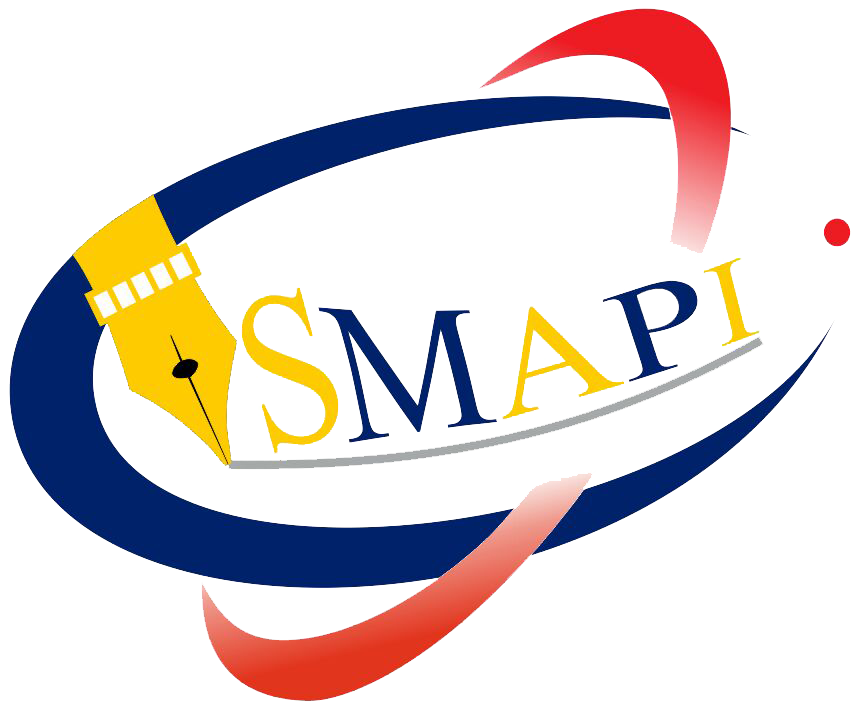ADIWIYATA PROGRAM IMPLEMENTATION EVALUATION
DOI:
https://doi.org/10.22236/jkpuhamka.v4i1.7470Keywords:
Program Implementation, Adiwiyata, PPLHAbstract
The purpose of this research is to find out and evaluate how the implementation and success of the Adiwiyata Program which has been implemented by the Pasar Baru 1 Elementary School in Tangerang, Banten, using the Discrepancy Evaluation Model. The research method used a qualitative approach, namely by obtaining data scientifically including data collection through interview, observation, and documentation techniques. Resource persons in this study consisted of the principal, committee, Adiwiyata team and teachers. The results of the research can be concluded as follows: (1) The vision, mission and objectives of the Pasar Baru 1 Elementary School, Tangerang City, Banten are in accordance with the policy foundation of the government standard criteria (2) Readiness of human resources in compiling and designing learning related to PPLH in part has met the criteria contained in the Adiwiyata program standard (3) The Adiwiyata Program Implementation Process at the Pasar Baru 1 Elementary School, Tangerang City, Banten has been going well, namely school members are actively involved in the implementation of the Adiwiyata program (4) Achievement of the results of program implementation Adiwiyata, namely Pasar Baru 1. The implementation of the Adiwiyata Program in this school has been quite good in instilling a caring character for the environment in school members, although there are gaps in several indicators of the success of the Adiwiyata Program.
Downloads
References
Gazali, M. (2016a). Evaluasi Program Adiwiyata SDN 06 Kelapa Dua Jakarta Barat. Jurnal Penelitian Dan Penelitian Pendidikan, 1(2 (257-273)), 259. https://doi.org/journal.uhamka.ac.id/index.php/jpp doi: 10.22236/JPP_Vol1No2
Gazali, M. (2016b). Evaluasi Program Adiwiyata SDN 06 Kelapa Dua Jakarta Barat. Evaluasi Program Adiwiyata SDN 06 Kelapa Dua Jakarta Barat, 1(2, (257-273)), 259.
Iswari, R. D., & Utomo, S. W. (2017). Evaluasi Penerapan Program Adiwiyata Untuk Membentuk Perilaku Peduli Lingkungan di Kalangan Siswa (Kasus: SMA Negeri 9 Tangerang Selatan dan MA Negeri 1 Serpong). Jurnal Ilmu Lingkungan, 15(1), 2.
Lazwardi, D. (2017). Implementasi Evaluasi Program Pendidikan di Tingkat Sekolah Dasar dan Menengah. Al-Idaarah: Jurnal Kependidikan Islam, VII(Ii), 143–156. http://ejournal.radenintan.ac.id/index.php/idaroh
Mahirah B. (2017). Evaluasi Belajar Peserta Didik (Siswa). Idaarah: Jurnal Manajemen Pendidikan, 1(2), 257–267. https://doi.org/10.24252/idaarah.v1i2.4269
Maryani, I. (n.d.). Evaluasi Pelaksanaan Program Sekolah Adiwiyata Ditinjau dari Aspek Kegiatan Partisipatif di SDN Unggaran I Yogyakarta. 170–180.
Nasional, S., & Unikama, P. (2019). Seminar Nasional PGSD UNIKAMA https://conference.unikama.ac.id/artikel/ Vol. 3, November 2019. 3(November), 149–157.
Pradini, I. K., Sudjanto, B., & Nurjannah, N. (2019). Implementasi Program Sekolah Adiwiyata Dalam Peningkatan Mutu Pendidikan Di Sdn Tanah Tinggi 3 Kota Tangerang. Jurnal Green Growth Dan Manajemen Lingkungan, 7(2), 122–132. https://doi.org/10.21009/jgg.072.03
Sudjana, D. (2014). Evaluasi Program Pendidikan Luar Sekolah. Bandung: PT. Remaja Rosdakarya.
Sudjoko, & dkk. (2015). Pendidikan Lingkungan Hidup (1st ed.). Tangerang Selatan: Universitas Terbuka.
Wahyuningtyas, D., Harsastro, P., & Supratiwi. (2013). Evaluasi Program Adiwiyata Di Sman 11 Semarang. Jurnal Ilmu Pemerintahan, 1–6.















